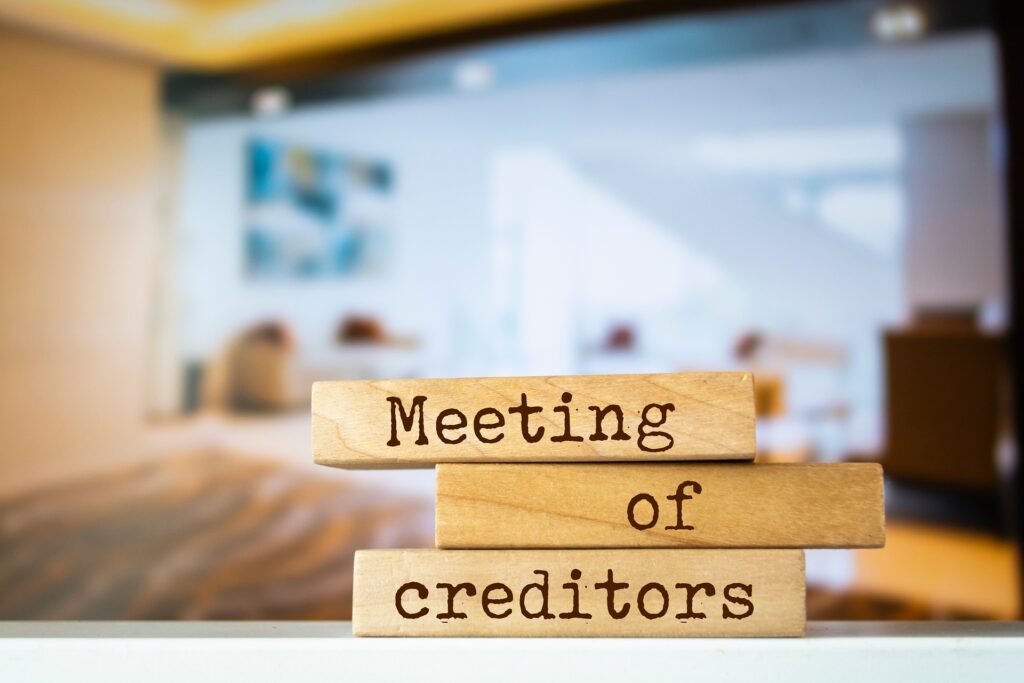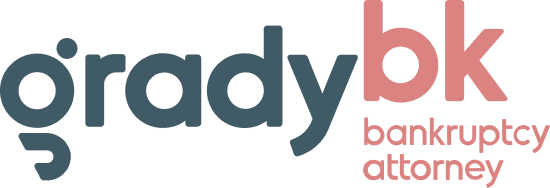Bankruptcy is a difficult choice. But it can also be a lifeline to those who need it. Deciding to file for bankruptcy in New York under Chapter 7 or Chapter 13 depends on your specific situation.
Chapter 7 might be the route if you want to eliminate most of your unsecured debts quickly, like credit card debt or medical bills, especially if your income is not high. On the other hand, Chapter 13 is a good option if you want to reduce or eliminate debt while you protect important assets like your home, car, or business equipment.
The process can be complicated and overwhelming for some, so we want you to know what to expect. Our clients are always guided through the paperwork easily, but what causes them the most anxiety is the mandatory meeting with their creditors.
Let’s look at how bankruptcy works in New York. After that, we’ll tell you exactly what to expect at the 341 meeting with your creditors. At Grady BK, PLLC, we want you to be prepared for everything. For personalized advice tailored to your specific situation, call our office today.
Chapter 7 Bankruptcy
Chapter 7 bankruptcy is primarily for people, although businesses can use it as well. When you file for Chapter 7 in New York, you begin by submitting a petition to the bankruptcy court. This requires a complete and detailed listing of your assets, liabilities, income, and expenses. Filing triggers an “automatic stay,” which stops creditors from contacting you about your debts and stops them from continuing or starting to sue you. They are informed that you are addressing your finances.
The court and a bankruptcy trustee oversee everything in the bankruptcy, ensuring fairness and legal compliance. Completing Chapter 7 bankruptcy occurs when your eligible debts are discharged (wiped away), marking a step toward financial recovery.
Chapter 13 Bankruptcy
Chapter 13 bankruptcy is tailored more for individuals (including those who run small businesses) and is particularly helpful for those with a steady income. It starts with filing a petition in bankruptcy court, just like in Chapter 7. In this process, you will also need to provide a detailed list of your debts, assets, income, and expenses.
Chapter 13 is for people with a regular income who are in debt but know they can pay some of it back eventually. They’ll propose a three- to five-year repayment plan to pay back a percentage of their debt. At the end of Chapter 13, the remaining debt is discharged (wiped away).
The Meeting of Creditors: The 341 Meeting
The Meeting of Creditors is known as the 341 meeting, and it’s a very important part of the bankruptcy process. It can also be the most stressful and intimidating part for our clients. In order to ensure you’re prepared, here’s a list of some of the most important aspects of the meeting:
- Purpose and Setting: The 341 meeting is a mandatory part of both Chapter 7 and Chapter 13 bankruptcy. It’s named after Section 341 of the Bankruptcy Code. The meeting is held outside of the courtroom setting, and there’s no judge involved. Instead, it takes place online via a Zoom meeting, and it is presided over by a bankruptcy trustee. The trustee is the person appointed by the court to oversee your bankruptcy case.
- Timing: This meeting usually occurs about a month after you file for bankruptcy. You’ll receive a notice with the specific time and date. Attending this meeting is important because failing to do so can result in the dismissal of your case.
- Attendees: At the 341 meeting, you and your bankruptcy attorney are required to attend. Creditors are notified of the meeting and have the right to attend, but most creditors don’t show up unless they suspect fraud or unfair treatment.
- Process and Questions: During the meeting, the trustee will ask you a series of questions. You are required to answer these questions under oath. The purpose is to ensure that you have honestly and accurately disclosed all your assets, liabilities, and other financial information in your bankruptcy paperwork. The trustee might ask about:
- Your reasons for filing bankruptcy.
- The accuracy of the financial documents you submitted.
- Your assets and how you valued them.
- Your debts.
- Your current income and expenses.
- Any property you sold or transferred before filing.
- If creditors attend, they also have the opportunity to ask you questions, though these are typically limited to the nature and location of your assets.
- Outcome: The 341 meeting is usually a straightforward process. It’s more about verifying the facts and ensuring transparency in the bankruptcy process. Most meetings are brief, only lasting only a few minutes. After the meeting, if there are no unresolved issues, the bankruptcy process will proceed toward discharge (in Chapter 7) or implementation of the reorganization plan (in Chapter 13).
It’s important to prepare for the 341 meeting with your attorney. We can help you understand what to expect based on your specific situation and guide you through the process. Remember, being honest and thorough in your responses is crucial for a simple bankruptcy process. Call Grady BK, PLLC, today at (315) 299-9005.

